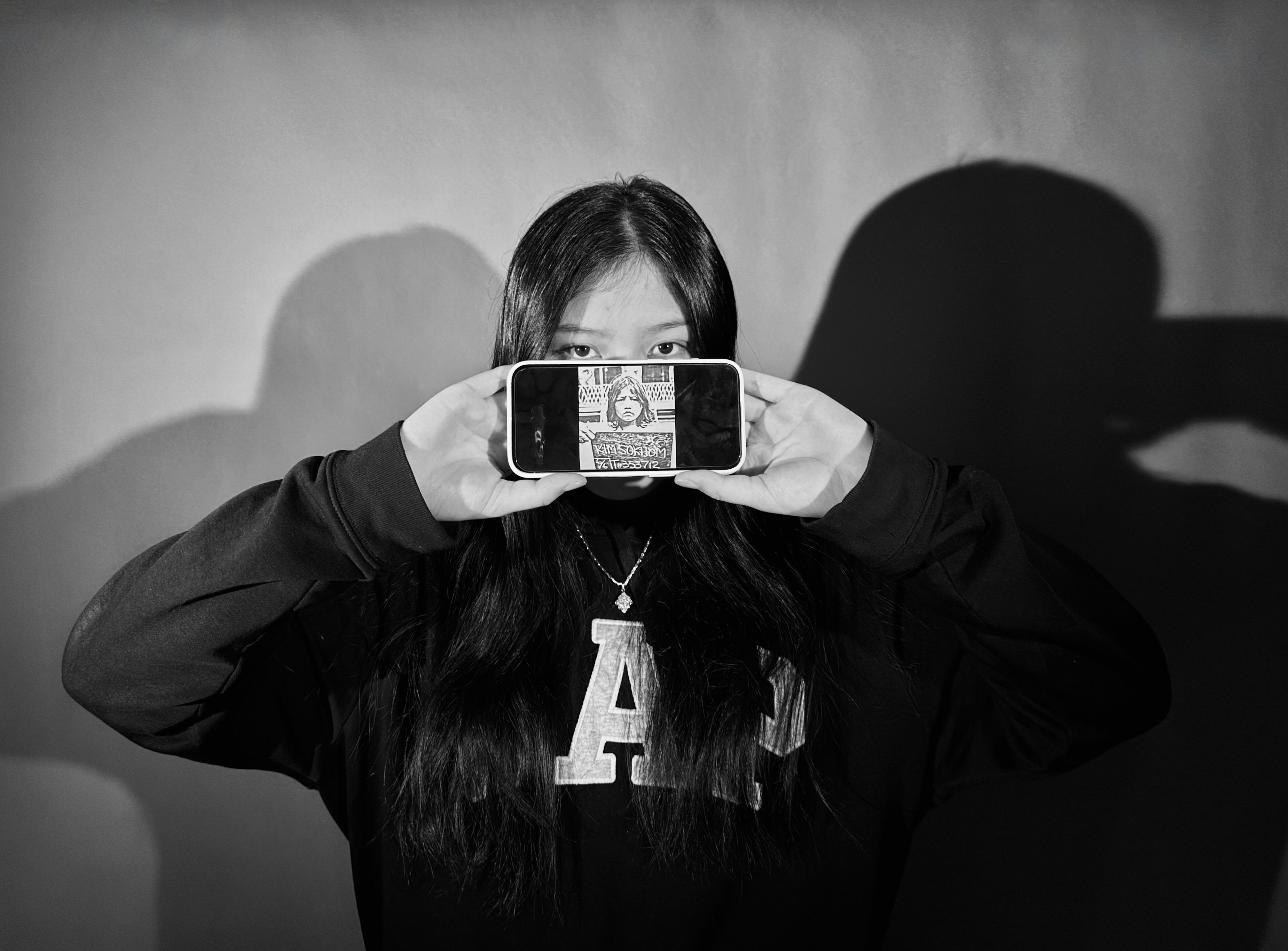We Are America
Part of Shaping Me
By Juliana

Lowell High School, Lowell, Massachusetts
I was 12 years old and in Social Studies class when my teacher began teaching us about the Khmer Rouge. In class we watched the movie “First They Killed My Father,” and all of a sudden I was filled with curiosity. I saw a full visual of what happened in Cambodia and as I sat in class, I thought to myself that this must be what my family went through. I wanted to know more. Being able to get full insight of my background would educate me more about where I come from.
My family immigrated from Cambodia in 1984, 23 years before I was born. They found themselves in Harrisburg, Pennsylvania. My mom was 12 years old at that time. They came to this country because they were escaping the Khmer Rouge. Years later they moved to Massachuesetts. But growing up I never knew much about the Khmer Rouge besides the basics that my family were in a war and had to escape.
But that afternoon in 7th grade, I went home and asked my mom about what she went through in the Khmer Rouge. I was excited because I wanted to know my background, but I was also nervous because my mom didn’t talk much about her experience during the war so I didn’t know if she wanted to tell me. We sat in the living room and she told me how in Phnom Penh she and our family were forced to make weapons there and were supplied with guns from nearby countries by a communist group led by Pol Pot. They were put into camps where they were forced to work and my grandpa had to run away. The reason was that he was a government official and would have been killed for his status if he stayed. The rest of my family ran away to find a place where they were able to seek refuge, which finally landed them in Pennsylvania.
Listening to her stories that afternoon, I was overwhelmed trying to process this information. That afternoon, she showed me a photo of her at seven years old in a prison work camp holding her prison number. Her hair is chopped short and she’s staring miserably into the camera. People often said I looked like my mom so when I saw the picture, I felt like I could picture myself there in her shoes and it was scary. But I didn't regret asking my mom about our history, because I now knew my mom’s experience. I did feel pity for her childhood self and what she had to experience. What she went through was unimaginable.
My family came to the U.S. as refugees and had to learn English and to find jobs in order to survive. My mom told me all of this later on when I had asked and this too surprised me. I was stunned that they made a living knowing nothing about their new home. They were able to finally reunite with my grandpa, bringing him to the U.S. to be a family again. He died of cancer years later and knowing he had survived the war makes him a survivor and that inspires me. My grandpa passed away before I was born so I never got to meet him but through the stories I’ve heard I know he was an amazing person.
Growing up, any time my parents were strict or would say things about all the opportunities I had, I used to get so angry. But now, having learned my family’s history, I try to look at how my life is through their perspectives. I realize they’re strict because they want me to be able to have a successful future and a good education because they didn’t get to have that. As a US born citizen I have a lot of opportunities that my parents didn’t have. Hearing the sacrifices that they made, made me think differently. I’m grateful for who I am and where I come from in a new way, because I finally know more about my history and how it is a part of shaping me.
© Juliana. All rights reserved. If you are interested in quoting this story, contact the national team and we can put you in touch with the author’s teacher.